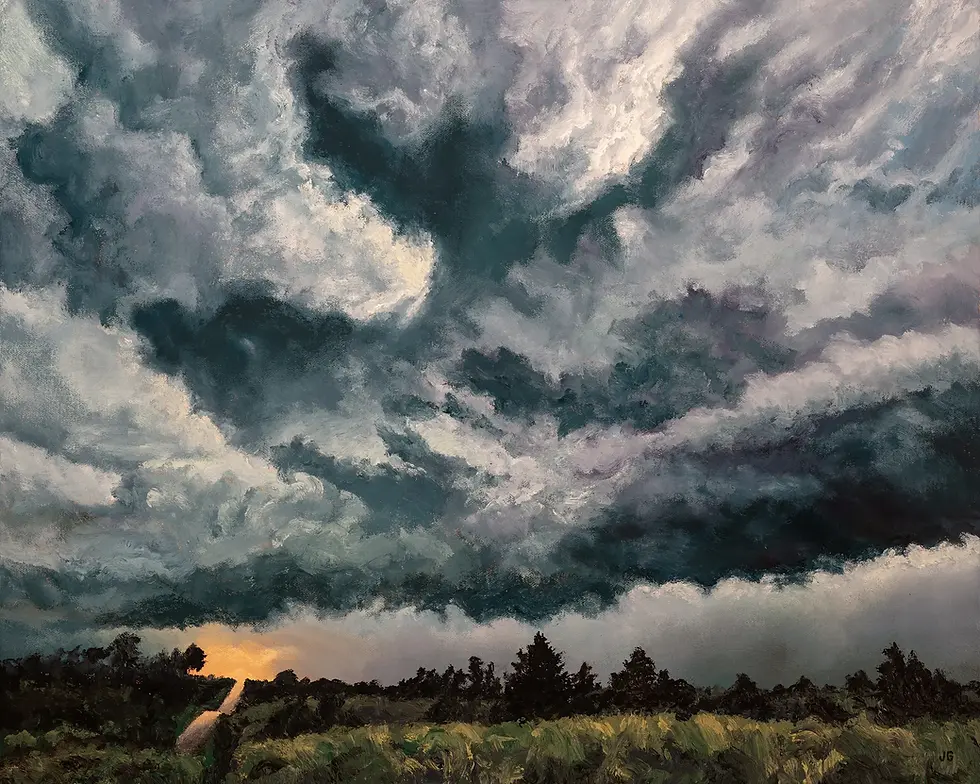Sports and sci-fi
- Colin Fleming

- May 14, 2020
- 7 min read
Thursday 5/14/20
Just ran three miles. New Wall Street Journal op-ed here on how it might not be a terrible thing if there's no sports for the remainder of 2020, even if you're a sports fan. Says the sports expert. The person who writes on sports constantly. Who talks about sports on the radio constantly. What happens with something like this--you know it going in--is the absolute dreg element lose their minds. People who would never actually read anything to see the points it make, or learn who is writing it. You'll note as you read the piece that I say I'm not hoping we lose sports for the rest of the year. But if we do, and you are that bothered by it, that tells me you have a very circumscribed existence. You live no life of self-examination, you don't grow, you are interested in very little, you learn nothing new, you have no new experiences, you probably have an anger issue, and I would imagine you drink too much. To those people, I'd suggest using their downtime from sports to maybe work on some of that. It will also make you less scared in life and feel less threatened by things and viewpoints beyond what is your present ken. But even if something is not going to happen, we might write a piece that takes the view of what if that thing happened, because the wisdom and insight we can that can be shared and gleaned is more important even if that first thing doesn't happen at all. In other words, even if sports is not going anywhere, it can still be useful to think about them if they had. You can do and have both. What a concept, right? It's a presentation of ideas, perspective, balance, not me sitting here with a giant cord in my hand and pulling the plug on the major sports leagues for the rest of 2020. There is more to life, and what you can find in sports you can find elsewhere, and it's not very hard. Says, again, the sports expert who does the sports stuff all the time for the fancy sports places. And if the loss of sports is such a blow for you--and it's not how you make your living--I would say to you that you've gone through very little in life, and you will, because it gets you--life, that is--and you might want to get a better understanding of value before it does catch up with you.
Moving on.
I have created a major work. I have created a story utterly unlike anything. As I have said of late, and as these pages have reflected in detailing what I've been listening to, watching, reading, I've been getting deep into sci-fi. I don't care about aliens, rocket ships, other planets--as subject matter, that does not interest me. We have subjects we're naturally interested in. That doesn't mean that with a great artist, they can't take a subject you're not normally interested in and make you more interested in it than anything else. But that's not really about the subject--it's about how the work connects with you, its ideas, how you see yourself in the work. This is, above all, what I do. That's why it doesn't matter what subject I'm writing about, whereas with someone else, if they are writing about...let's take something I wrote about two days ago...Géricault's Wreck of the Medusa...they are not going to make you interested or care if you're not already into painting, French painting, historical painting. I'm interested in universal reach. I have and display more expertise, and I forfeit none of my universal reach. That may sound like a nonfiction thing, but it's also a fiction thing.
I had a high school teacher who said my main natural interest, as in a time and place that mattered to me, was the Old West. That's not true. I'm sure they thought this because I knew a lot about Westerns. The sea is my place. For others, it's that idea of the future, the rocket ships, the planets, etc. But I am increasingly drawn to science fiction for the same reasons I'm drawn to YA literature--the invention. People invent stories. They have creativity. There is no creativity or invention in literary fiction. There's nothing worth reading. There's what I do, then there is everyone else, who is doing something different. I'm inventing within the human realm. I don't do social realism as they mean it--a term I loathe--as this kind of recording device. I'm not a recordist. I'm a storyteller. I kept seeing these sci-fi writers come up with these ideas that no one could come up with right now. You see it in YA literature, too. There's imagination. Concepts. Not this Lydia Davis garbage. Not this There, There garbage. Not this Iowa MFA workshopped garbage.
As readers of this journal know, my favorite book is William Sloane's To Walk the Night, which is sci-fi, but also horror, social realism, a locked observatory mystery, a story about two friends. I have now written a 4000 word sci-fi story that is also about people right here, right now, about computers, about pandemics, about government fallibility, about societal disconnection, called "A Problem to Be Solved," and once again. like "Fitty," like "Six Feet Away," it is a story that if I were not blackballed or if these people could allow anything truly original in their pages, would rock this world. It is an absolute all-timer. It is an all-time famous story waiting to happen.
People are being absorbed into computers, 40% of the world has been killed off by a virus, the government just keeps sending everyone checks, so they live in huge houses they never come out of, no one has any friends, science has evolved so that people live for hundreds of years, which means that pain deepens, because it turns out that time does not fix all--and something happens to these people, this world, that allows them and it to live again. It's told by a man who is old enough to remember when people knew who Voltaire was. His wife, who was pregnant with their son, has been lost, absorbed into the computer, back before all computers were eradicated. Science even figured out that the human soul is a real thing, a measurable thing, viewable, and machines are hooked up to the souls of volunteers who figured sooner or later they would be absorbed into their computers, because we're trying to learn where they go, to track them. It's sci-fi, but it's also not sci-fi, it's social commentary, it's indictment, it's hope.
So, what has this week been thus far? I wrote a 3200 word feature on The Last Dance. Beatles piece came out in The Daily Beast, sports op-ed in the WSJ. I wrote a 3700 word essay on Géricault. Here is Tuesday's Downtown interview, talking about sports, music, TV. I composed that beautiful ghost story, "Under Benches." And now this sci-fi story, "A Problem to Be Solved." I'm still going over it. I wrote the entire thing yesterday, made a copy of it today, and just started working on it anew, doing what I need to do. I want it to be tight and expansive at once. These were not even two of the three major stories--the third being "Rain Dried," which was completed last week--that I have in progress and which I've referenced on here. "Green Glass Door" and the other one. I need to write a feature on Dylan now. Hopefully I can do that today.
I got Emma a birthday card at CVS because she turns sixteen tomorrow. I was going to send her a link to "Only Sixteen" or "Sweet Little Sixteen," but rock and soul songs about people aged sixteen tend to be pretty creepy, as it turns out, so we'll nix that plan.
Saw the rest of The Lighthouse. Truly pointless. Laughably bad. It's not even mental masturbation, it's an attempt to con you that these people had anything. When you have nothing, you pretend to be "deep" and to go the symbolism route. The mermaid thing is comical, looks comical, plays comical. The actual masturbation is comical, there is no point other than "look how edgy we are!" It's childish. They have no story, there is no reason for anything to happen in the film, no reason for the haunting if you even want to call it that, there is no reason to care. And no, it's not some imagistic poem. It's a filmmaker who has absolutely nothing and is conning you, if you let him. People can very rarely tell a story now. People can very rarely think of a story to tell. Can we please have some standards and call the BS when we see it? Maybe it's okay that there's not much that is worth a damn right now, artistically. We don't have to give out the awards and plaudits to somebody just so we can say we gave them out. That's not how anything gets fixed, that's not how we encourage other people to produce work that's actually good, that's not how we build a system that supports work that is actually good.
I'm envious of the great sci-fi writers of the 1950s, because they had all of these wonderful markets for their inventive stories. They were in real competition with each other to come up with the best ideas, the best works. The best works, the best ideas, won. It wasn't about connections and classism and being a boring, mediocre, pretentious writer, which is all that publishing is about now. You wrote your great story, it ran in the good place, and if your story was good enough, it would be adapted for a radio program like X Minus One, which I now have to say is the best radio program I have heard. I am listening to about a dozen shows a day, and some of them border on perfect. "Zero Hour" and "How-2" are perfect, I'd say. "Skulking Permit" is quite witty.





Comments